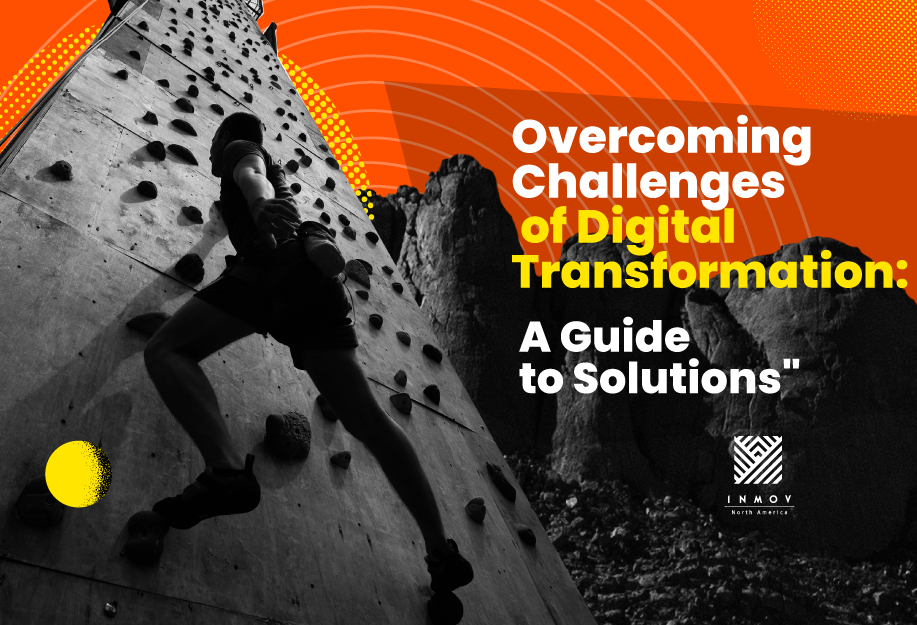- info@inmov.com
- ldaza-ct@inmov.com
- +1 786-983-5330
-
1111 Brickell Avenue
10th Floor. Miami, FL 33131
All rights reserved © 2024

In the world of modern business, digital transformation is no longer a luxury, but a necessity. As companies strive to stay competitive, the need to adapt and embrace the digital age has become paramount. However, challenges fill this journey, and a strategic plan can make the difference between success and stagnation.
Every organizational change meets resistance. Employees often view change as disruptive, challenging their established workflows. Overcoming this requires clear communication about the goals and benefits of the transformation. By emphasizing the positive outcomes and providing training sessions, organizations can foster a culture of adaptability and acceptance.
Emerging technologies mandate new skills. Traditional businesses might find their workforce lagging behind in the required expertise. Addressing this gap involves both training existing employees and hiring external experts. Investing in regular professional development sessions ensures that the staff stays updated and equipped for the digital era.
Obsolete technologies can be a significant barrier. Modern solutions may not be compatible with older systems, necessitating a comprehensive tech audit. Organizations need a phased plan to replace or upgrade outdated infrastructure, ensuring that they don’t fall behind in the digital race.
With digitization comes the increased risk of cyber threats. Protecting data and maintaining user privacy are paramount. Organizations must establish robust cybersecurity protocols, continually update them, and ensure employee awareness about best practices. This vigilance not only guards against external threats but also ensures compliance with data protection regulations.
Integrating a myriad of digital tools can be daunting. Ensuring these systems work in tandem requires careful selection of solutions with open APIs and cloud-based compatibility. Seamless integration improves workflow efficiency and enhances user experience.
Quantifying the benefits of digital initiatives is complex. Defining clear metrics and KPIs from the outset offers clarity on progress and outcomes. Beyond immediate financial metrics, factors like operational efficiency, customer satisfaction, and innovation rate should also be considered.
A well-defined strategy acts as a beacon for digital endeavors. By outlining clear objectives, steps, and success measures, businesses can ensure they remain on the right trajectory throughout their digital transformation journey.
To truly thrive in the digital age, businesses must see challenges as opportunities. With the right strategies in place, any hurdle can be transformed into a stepping stone towards success.